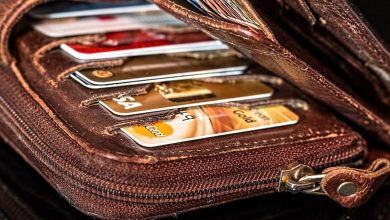Is It Easy for Muslims and Arabs to Buy a Car in the U.S.? | Halal Financing & Community Support
Learn how Muslims and Arabs in the U.S. navigate car buying, from halal financing and credit building to affordable options and community support.

For many Muslims and Arabs moving to or living in the United States, owning a car is not just a convenience — it’s a necessity. Unlike in some other countries where public transportation is widespread, most American cities are designed around personal vehicles. Whether for commuting to work, attending school, or going to the masjid, having reliable transportation is crucial.
But how easy is it for Muslims and Arabs to buy a car in the U.S., especially for those new to the country? The process is generally straightforward, but it requires some financial planning and understanding of U.S. systems such as credit history, financing options, and halal purchasing alternatives.
1. Understanding Car Buying in the U.S.
The car market in the United States is diverse and well-structured. Buyers can choose between new or used vehicles, dealerships or private sellers, and cash or financing options. For Muslims and Arabs who are new immigrants, students, or professionals, the main challenges are often related to credit history and budget planning rather than availability.
Dealerships across states like California, Michigan, Texas, New York, and Illinois—where large Arab and Muslim communities live—offer competitive pricing and often provide multilingual support to make the process easier.

2. Financing and Credit Challenges
Buying a car with cash is the simplest route, but not everyone can afford that upfront. Most people in the U.S. use auto loans to purchase cars, paying monthly installments with interest.
However, this can raise concerns for Muslims who follow Islamic financial principles, as traditional loans involve riba (interest), which is not halal. To address this, several Islamic financial institutions and community-based lenders now offer interest-free or Sharia-compliant car financing options, including:
-
Guidance Residential
-
Ijara Community Development Corp (IjaraCDC)
-
Devon Bank’s Islamic Financing Program
These programs allow Muslims to buy cars through leasing or partnership contracts, avoiding interest-based transactions while still providing access to modern credit systems.
3. Used Cars and Affordable Options
For newcomers or students, buying a used car can be an excellent way to save money. Websites like CarMax, AutoTrader, Cars.com, and Facebook Marketplace offer listings of affordable, pre-owned vehicles with detailed information about price, mileage, and vehicle history.
Additionally, Arab and Muslim business owners in states like Michigan (Dearborn), Illinois (Chicago), and Texas (Houston) often run trusted used-car dealerships that cater specifically to immigrant and Muslim customers.
4. Community and Support Networks
Muslim and Arab communities across the U.S. frequently help newcomers navigate the car-buying process. Many local masjids and Islamic centers offer resources or connect members with trustworthy car dealers and mechanics.
For instance, community groups in Dearborn, Michigan, or Paterson, New Jersey, often post used cars for sale by Muslim owners, ensuring fair pricing and honesty rooted in Islamic ethics.

5. Insurance, Registration, and Halal Responsibility
Every vehicle in the U.S. must be insured and registered with the state’s Department of Motor Vehicles (DMV). Insurance can vary based on location, driving history, and the type of car. Some Islamic organizations help Muslims find ethical insurance providers that align with halal principles.
Owning a car also comes with Islamic responsibilities — maintaining honesty in transactions, driving safely, and ensuring the vehicle is used in ways that do not cause harm.
Conclusion
For Muslims and Arabs, buying a car in the U.S. is generally accessible, though the process may take time for those establishing credit or seeking halal financing options. With growing Muslim communities and the rise of Sharia-compliant financial services, it’s easier than ever to own a vehicle while staying true to Islamic principles.
Whether you are a student, professional, or new immigrant, the key is preparation: understanding your budget, exploring financing options, and seeking advice from your local Muslim community.



